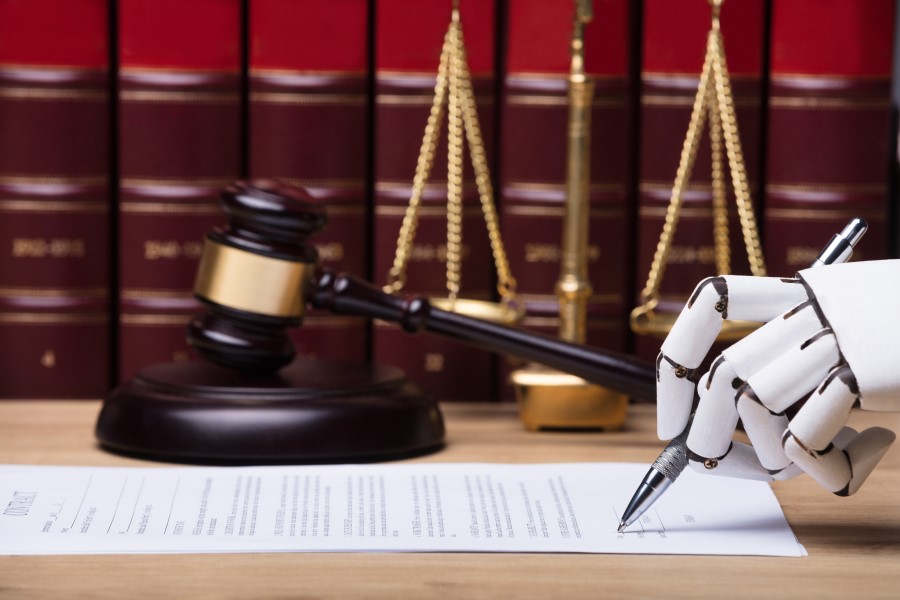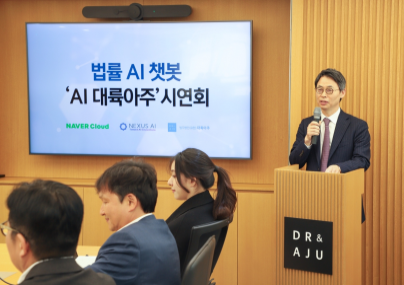
Even as generative AI sweeps the globe, Indian law firms have been slow to embrace it. Those that have done, though, are encountering lower costs and shorter turnaround times. But as with any new technology, it’s critical that firms move carefully.
Generative AI has arrived, and law might never be the same. A 2023 study by New Zealand-based AI solutions provider Onit compared the ability of large language models (LLMs), like ChatGPT, to review contracts with that of junior lawyers and legal process outsourcers. A few LLMs, including GPT4-1106 and Claude 2.0 identified contract issues with almost the same accuracy as LPOs and junior lawyers. Remarkably, while a junior lawyer took on average 56 minutes and an LPO 200 minutes to review the contract, LLMs completed the task in a matter of seconds. Equally notable is the stark difference in the average cost per document review. A junior lawyer would cost $74.26 per contract, an LPO $36.85, while LLM would cost under a dollar per contract.
These are not just statistics; they signal a seismic shift in legal practice. The growth of specialised generative AI models is poised to become a game changer for law firms in terms of productivity and turnaround times for contract review. But the buck doesn’t stop there. Generative AI offers benefits in terms of increased capacity and scalability, improved and more expansive information analysis to factor into legal strategy and advice, personalised client advice and competitive intelligence, say Trilegal partner Nikhil Narendran.
“It also provides more touchpoints for engaging with clients, such as offering chatbots and legal services platforms to provide legal advice at the first level,” Narendran says. “Ultimately, adoption of AI plays a significant role in making our professionals and firm future-ready and moving them up the value chain.” Indeed, the industry view is that the use of AI for automating repetitive work, frees up lawyers to allow them to focus on more crucial functions such as strategy-building and team management.
“It also gives time to start nurturing client relationships – something mid-level lawyers are unable to focus on and is becoming necessary in today’s time for them to deliver their true potential once they rise as a partner,” says Yavanika Shah, a practice development professional at IndusLaw.
“I also think that law firms who adopt advanced technology will be able to retain top legal talent, especially from the younger generation who are comfortable with technology,” adds Shah, who recently authored a chapter in a book titled ‘Legal Operations in the Age of AI and Data.’
ADOPTION IN INDIA
Leading law firms are responding to demands for innovation from clients to integrate generative AI into their workflows.
Trilegal has been one of the firms leading the way on Gen AI adoption in India. The firm has constituted a Digital Innovation Group (DIG) as part of its efforts to render the law firm future-ready to incorporate AI-based solutions, including generative AI, to bring about greater value to clients and the industry at large, Narendran says.
“Initiatives in the process of being implemented include AI tools enabling better business and knowledge management by providing data insights and generating key driving points for various areas, AI-based dashboards for partners to obtain reports and actionable insights, AI-systems for research, drafting, due diligence and document management, as well as automation of administrative aspects such as resource planning, generation of templates and draft responses and preliminary briefs, and related solutions to improve operational efficiencies,” he adds.
Other firms are not far behind. Nishith Desai Associates has developed an in-house Gen AI-based chatbot called NaiDA. “Built on the advanced GPT-4 model from OpenAI and hosted on AWS servers, NaiDA is designed to empower our lawyers with intelligent insights in their daily workflows,” the firm says. Meanwhile, Cyril Amarchand Mangaldas started dabbling in machine-learning models as early as 2017, when it signed an agreement with Canada-based tech company Kira Systems to launch a customised tool to assist in contract review.
However, barring some industry leaders, LLM adoption in the Indian legal market has been slow despite its tangible, well-documented benefits.
“The Indian legal-tech market is still fragmented - making it difficult for law firms to find solutions that specifically meet their needs. This coupled with traditional lawyer mindset and regulatory uncertainty, leads to a lot of evolution of the space to happen for the industry to fully utilise the potential,” Shah explains. Having said that, Shah has noticed an increased collaboration between law firms and legal-tech startups to create custom AI solutions for specific use cases and needs. There is also the growth of specialised AI solutions for specific practice areas like corporate law, intellectual property and disputes in the market, Shah adds.
Notably, legal-tech tools are focusing on improving their user experience. “A lot of legal techs are coming up with not only user-friendly websites but also mobile apps, to make it easier for lawyers to input data on the go,” Shah explains.
LET’S GET ETHICAL
Early users of this nascent technology note that the adoption of Gen AI in the legal industry faces three stiff regulatory and ethical challenges: maintaining client confidentiality, compliance with data privacy laws and bias perpetuation.
“All documents received and shared with a client are subject to confidentiality restrictions. This is particularly of concern since law firms are required to maintain (on a case-to-case basis) Chinese walls within the firm for certain client products/documents, which would need to be factored in while leveraging firm-wide data,” Narendran explains. Compliance with the recently enacted Digital Personal Data Protection Act, 2023 (DPDP) and the EU’s General Data Protection Regulation also involves building significant data-related infrastructure, manpower and workflow by a law firm using Gen AI.
“The DPDP governs the collection, storage, and processing of personal data deployed in training AI models and generation of personalised inputs,” Narendran says.
Additionally, firms ought to also conduct thorough due diligence on AI vendors and their data practices before engagement, Shah adds. This includes asking as many questions as possible about data transparency and assessing if the legal tech company has a black box algorithm (so-called because the user cannot see the inner workings of the algorithm), she explains.
Lastly, law firms also have to customise and train their AI in a manner to prevent it from perpetuating biases.
“One major challenge is the lack of accountability and accuracy in certain AI-powered processes, such as the instances of ‘hallucinations’ where fictional sources or citations are provided in the generated content,” Narendran says.
“To mitigate this risk, law firms must ensure that their AI systems are trained on diverse, representative datasets and implement detection and mitigation mechanisms for bias in AI-generated outputs,” he explains.
Narendran also cautions that currently, generative AI models may also face issues in accurately interpreting and contextualising legal data in highly specialised areas of law.
“We foresee increased adoption of generative AI technology across four broad areas – document review, contract analysis, document management, legal and market research report, and outcome determination in legal and regulatory proceedings. Use-cases in these categories also extend to generation of legal analytics dashboards, and entirely automated due diligence processes.”
-Nikhil Narendran, Trilegal
To fix this, Shah points out that integrating AI with human expertise is crucial. Human-in-the-loop or HITL systems, where humans and machines work together collaboratively to achieve a desired outcome, are the need of the hour, particularly in the use of GenAI in legal practice, “where human input is crucial to guide and refine the development and operation of AI models,” Shah explains.
LOOKING INTO THE FUTURE
The legal-tech industry is likely to continue growing despite present ethical and regulatory challenges.
“While the initial investment of time and efforts in customising AI tools will be significant, ultimately, the long-term benefits are likely to outweigh such initial considerations,” Narendran says.
“We foresee increased adoption of generative AI technology across four broad areas – document review, contract analysis, document management, legal and market research report, and outcome determination in legal and regulatory proceedings. Use-cases in these categories also extend to generation of legal analytics dashboards, and entirely auto-mated due diligence processes,” he adds. Shah also says that GenAI can enable innovative pricing models based on value delivered, making legal services more accessible to a wider audience. “AI algorithms can predict litigation outcomes and durations, which might help the firms to offer fixed fees with confidence, reducing financial risks for both client and firm,” Shah says. Both Narendran and Shah believe that GenAI is going to positively disrupt law firm functions, client relationships, research and document review in a big way going forward.
“While the use-cases at present are largely in an augmentative capacity to assist lawyers in offering legal advice, the near future is likely to entail a foundational shift in the manner in which law firms are structured, with artificial intelligence forming the very core of the law practice,” Narendran says.


